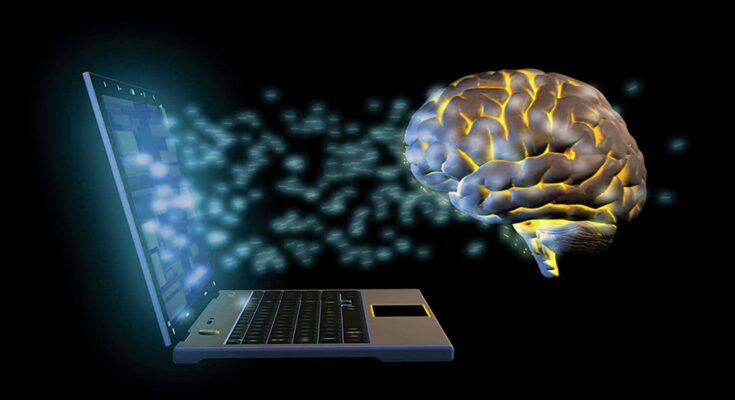A Brain-Computer Interface (BCI) is a technology that enables direct communication between the brain and an external device, such as a computer or a prosthetic limb, without the need for any physical movement. It relies on the detection and interpretation of brain signals to control and interact with digital systems. The BCI system typically involves the use of sensors to record brain activity, which is then processed and translated into commands or actions. BCI technology holds great potential for various applications, including assisting individuals with disabilities in regaining mobility and communication abilities, enhancing virtual reality experiences, and facilitating novel forms of human-computer interaction. Ongoing research and advancements in this field are continually expanding the possibilities of BCI and its potential impact on various aspects of human life.
The Revolutionary Potential of Brain-Computer Interface
In the realm of technology, few innovations hold as much promise and potential as the Brain-Computer Interface (BCI). This groundbreaking technology has the ability to bridge the gap between the human mind and the digital world, opening up new possibilities in various industries. From healthcare to gaming, BCI is revolutionizing the way we interact with machines and empowering individuals in unimaginable ways. In this article, we will explore the current landscape of BCI, its applications, and the transformative impact it is poised to have on business and technology.
According to Fact.MR the global revenue of the brain-computer interface market in 2022 was held at US$ 1.6 billion. With a 13.6% projected CAGR from 2023 to 2033, the market is expected to reach a US$ 6.5 billion valuation by the end of the forecast period.
The Rising Potential
BCI technology enables direct communication between the brain and external devices, bypassing the need for physical input. By detecting and interpreting brain signals, BCI systems allow users to control digital systems, prosthetic limbs, and even communicate with others. With the ability to tap into the mind’s vast capabilities, BCI has the potential to reshape industries and improve the quality of life for millions.
Healthcare Revolution
One of the most promising applications of BCI lies in healthcare. BCI has the potential to transform the lives of individuals with disabilities, allowing them to regain mobility and independence. Paralyzed patients have successfully used BCI to control robotic limbs, enabling them to perform everyday tasks. Additionally, BCI has shown promise in helping individuals with neurological disorders, such as Parkinson’s disease or epilepsy, to manage their symptoms more effectively.

Enhancing Virtual Reality
BCI has also made significant strides in the field of virtual reality (VR). By integrating BCI technology, users can now control their virtual environment using their thoughts, creating a more immersive and interactive experience. This has immense implications for industries such as gaming, training simulations, and therapy, where users can manipulate virtual objects or navigate virtual worlds simply by thinking.
Transforming Business Operations
In the business world, BCI has the potential to streamline operations and enhance productivity. For example, BCI-powered devices can enable workers to control complex machinery or systems without physical input, reducing the risk of human error and improving efficiency. BCI can also be leveraged in data analysis, where researchers can analyze brain activity to gain insights into consumer preferences and behavior, aiding in product development and marketing strategies.
Ethical Considerations
While the possibilities of BCI are exciting, it is crucial to address ethical concerns surrounding this technology. Issues related to privacy, security, and consent need to be carefully navigated to ensure the responsible and ethical implementation of BCI. Additionally, ensuring accessibility and affordability of BCI technology is crucial to prevent further disparities in healthcare and education.
Conclusion
Brain-Computer Interface technology is on the cusp of transforming the way we interact with machines, opening up a world of possibilities in various industries. From healthcare advancements to improving virtual reality experiences and enhancing business operations, BCI holds immense potential. As research and development continue to push boundaries, it is crucial for businesses and technologists to collaborate, ensuring responsible and ethical implementation while striving to unlock the full potential of the human mind. The future of BCI is bright, and the possibilities are limited only by our imagination.
Also Read: The Future of Defense: Harnessing the Strength of Military Exoskeleton Technology


